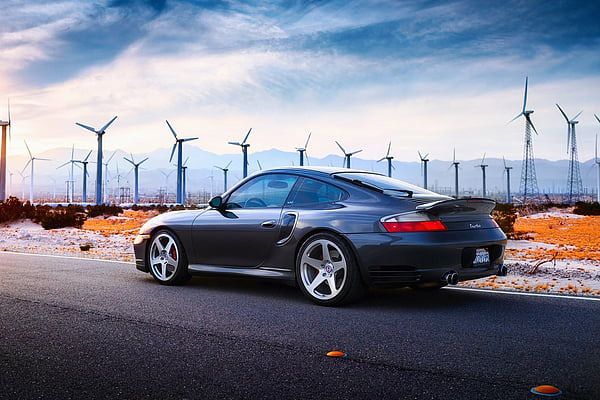At the very end of 2020, a story appeared in multiple automotive news publications that seemed, at the time, to be not-so-significant automotive news. It initially caught my eye because it involved the Porsche brand, an old client of ours. But the varying headlines made it unclear if it was actually the same story being covered:
“Siemens Energy and Porsche, with partners, advance climate-neutral eFuels development” – Dec 2, 2020, official Porsche press release [1]
“Can gasoline save our planet?” – Dec 4, 2020, Motor Mouth on driving.ca [2]
“Porsche-backed pilot plant to produce synthetic fuel at industrial scale” – Dec 9, 2020, MotorAuthority.com [3]
Over the COVID-impaired holidays, the story grew on me. It became a story of hope for the future.
Porsche, like its parent Volkswagen, is transitioning to electric models and hybrid & electric versions of some existing models. The intended use of carbon-neutral eFuel is Porsche’s existing internal combustion engine (ICE) ‘carpark’, which is a huge proportion of historic unit production. Over 70% of all Porsches ever built are still roadworthy.
Pilot Project Explained
Canada’s David Booth (aka Motor Mouth) may have explained the technology behind this experiment best. Allow me to simplify even further:
- Extract hydrogen from water.
- Combine the hydrogen with carbon dioxide scrubbed from the atmosphere (CO2 is the world’s second-most abundant greenhouse gas) to create synthetic methanol.
- Convert the methanol into gasoline.
- Power these electricity-intensive processes using wind turbines.
Each separate step has been done before, but never have they been integrated with a carbon-neutral objective. So what’s the experimental part? Production at scale and at a consumer-level price close to gasoline produced from dirty ol’ fossil fuels.
Porsche vs Tesla on CO2 Footprint
Success will be a huge deal because it means infinitely-renewable carbon-neutral fuel for internal combustion engines. It’s important to note that in this case, we’re talking about carbon neutral in the total sense. EVs and PHEVs (plug-in hybrids) require electricity to recharge. But 65% of electricity generation around the world still uses petroleum products as their fuel (coal, oil, natural gas), so charging up your Tesla contributes to carbon dioxide pollution and will for many years to come. Filling up your classic Porsche with eFuel will not add CO2 to the environment—after you apply the atmospheric carbon reduction achieved at the CO2 scrubbing stage.
Hope, Win or Fail
Can Porsche and its partners do it? It will take at least five years to find out. But this is a wonderful story of how technology can be re-imagined to solve the most serious problems we have created for planet Earth. Either way, this is hope for our environmental future, beyond Porsche and beyond the automotive category. Oh—and you just might get to keep driving your old-school Porsche.
- Porsche AG.
- David Booth, “Motor Mouth: Can gasoline save our planet?”, driving.ca, Dec 4, 2020.
- Viknesh Vijayenthiran, “Porsche-backed pilot plant to produce synthetic fuel at industrial scale”, MotorAuthority.com, Dec 9, 2020.
- Image credit: Wallpaper Flare.





